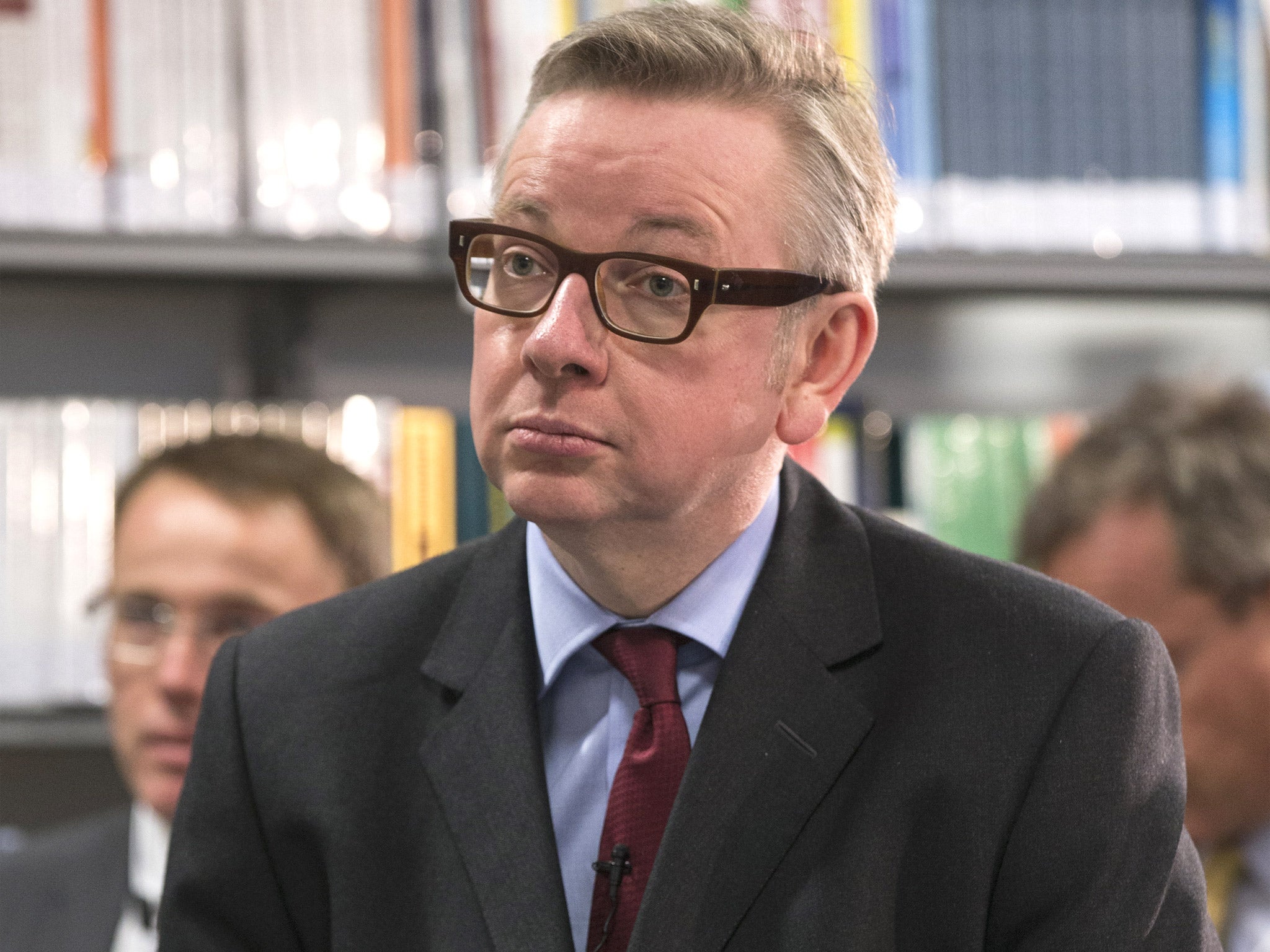Michael Gove's planned shake-up of A-levels 'will cost teachers their jobs'
A 'decoupling' of AS-level exams from A-levels mean far fewer students are expected to sit the exam

Education Secretary Michael Gove's planned shake-up of A-levels will lead to teachers being made redundant, a conference has heard.
Under the Government's plans, AS-level marks will no longer count towards A-level grades. The exam is to be “decoupled” from A-levels and stand as a qualification in its own right.
As a result, far fewer students are expected to sit the exam - with colleges offering students the traditional three A-levels route to university instead of encouraging them to take four subjects to AS-level and then drop their weakest suit.
Mark Bramwell, in charge of sixth-form colleges at the Association of Colleges, told a conference in London: “The three A-level route will lead to staff redundancies.”
Many colleges, he said, had not yet decided how to react to the Government's proposals - but a growing number had now indicated they would shift to the traditional three A-levels for students.
Andrew Parkin, principal of St Dominic's Sixth-Form College in Harrow, north-west London, added: “We're looking at a significant cut in our funding - as many of you (colleges) are at the end of 2016.”
Colleges would have to consider how to tackle examination costs in the face of budget shortfalls. One college estimated it was costing £180,000 to put all its students in for AS levels.
Mr Parkin added: “My view as a head is that we need a broad and balanced curriculum. We need to keep that as long as possible because I think it is right to give the students the opportunity to do a lot of different subjects.
“At present we offer 30 subjects and I want to keep that as long as we can afford to do so. However, there is lots of uncertainty and lots of anxiety amongst the staff with all the things that are happening.”
Earlier, Glenys Stacey, chief executive of Ofqual - the exam regulator, insisted that the shake-up was not designed to make A-levels harder.
Research internationally had shown that “generally our A-levels stack up well but they can get better with tweaking,” she said.
“We haven't been asked to set a different standard for A-levels - as we have, for instance, with GCSEs,“ she added. “We're not trying to set a different standard and we're not changing the grade structure. We see no reason to do so.”
Instead the reforms, which will see a shift from coursework to end-of-course three hour exams, will concentrate on updating subject content and making the syllabus content clearer. For instance in a range of science subjects plus economics and computer technology, the maths content needed for the courses will be spelt out in detail.
She added that - in science - 15 per cent of marks would be allocated to students' understanding of practical experiments.
“If you haven't done experiments you're going to be up against it,” she added.
Scientists have criticised the proposals - under which the experiments themselves will carry a pass or fail mark and not count towards overall grades - saying they will reduce the amount of practical experiments students undertake.
Join our commenting forum
Join thought-provoking conversations, follow other Independent readers and see their replies
Comments
Bookmark popover
Removed from bookmarks